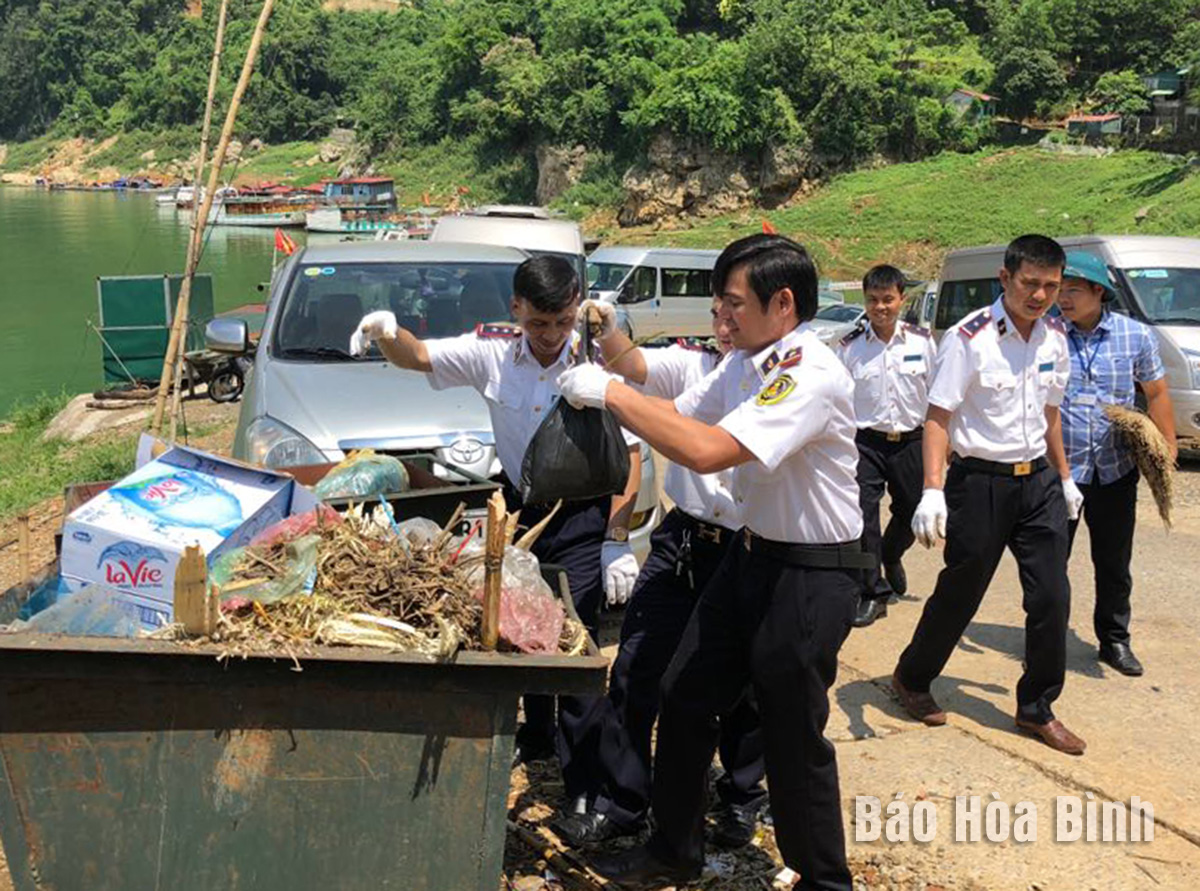
In a collaborative effort to tackle plastic waste, Hoa Binh has taken measures to enhance pollution prevention and control, manage waste, and develop urban and rural environmental infrastructure, with emphasis placed on constructing recycling and waste treatment facilities equipped with advanced technology.

The
Hoa Binh port management agency and local authorities have launched a waste
collection campaign to protect the environment at the Bich Ha port in Hoa Binh
City.
Between 2020 and now, the provincial Department of Natural Resources and
Environment has coordinated with socio-political organisations to run over 180
conferences, training sessions, and awareness-raising campaigns on
environmental protection and combating plastic waste, targeting establishments,
businesses, environmental officials, and association members. More than 50
classes have been conducted to guide a total of 1,500 people in the safe use of
plant protection products and the collection of used plant protection
packaging. Four anti-plastic waste communication events have been held, while
over 3,000 reusable bags and thousands of biodegradable plastic bags have been
distributed to the public.
The department has intensified state management activities related to
environmental issues and rigorously addressed violations causing pollution.
Nguyen Thi Hoa, head of the department's environmental protection division,
stated that for projects investing in the province, environmental protection is
a priority. Those involving the production and import of non-biodegradable
plastic bags and single-use plastic products are either limited or not
considered for investment approval.
Despite the achieved results, changing behaviours and habits related to the use
of non-biodegradable plastic products remains challenging due to the products'
convenience and low cost. The local mechanisms, policies, and regulations on
plastic waste management are yet to be cohesive and the sorting, collection,
and treatment of waste are yet to fulfill expectations.
In the coming time, the province will continue to strictly enforce specific
obligations of manufacturers and distributors in the recovery, sorting,
recycling, or payment of waste treatment costs based on the quantity of
products sold on the market. Hoa Binh will also expedite the completion and
issuance of preferential policies to support and promote the environmental
industry, including the recycling industry. Research, meanwhile, will be
conducted to develop a secondary market for exchange of by-products and waste
products to turn waste into secondary resources in the closed-loop system of
new production cycles. Priority will be given to encouraging public
participation in environmental initiatives and implementing regulations to
replace harmful fuels and products with environmentally friendly and reusable
options.
The emulation movement "Hoa Binh joining hands to build new-style rural areas” has been widely spreading, becoming a driving force that motivates the localities to renew rural landscapes and improve the material and spiritual lives of the residents. In this movement, the people play a central role-both as the main implementers and direct beneficiaries of its outcomes.
In response to the global digital revolution, Hoa Binh Newspaper is transforming itself into a modern and multi-platform media hub, blending cutting-edge technology with a restructured newsroom and a new generation of tech-savvy journalists.
Hoa Binh province’s Association of the Elderly recently held a conference to review the project on expanding the inter-generation self-help club model until 2025.
In a move to implement Resolution No. 57-NQ/TW, issued on December 22, 2024 by the Politburo, which targets breakthroughs in science-technology development, innovation, and digital transformation, the Hoa Binh provincial Department of Health has issued a plan to roll out the "Digital Literacy for All” campaign within the local health sector.
An Nghia Commune (Lạc Sơn District) is one of the communes that achieved the tha standard of the national new rural area in 2018. Entering a new development phase, the commune is now trying to meet the criteria for the advanced new rural development. With the strong political will and the public consensus, the commune is gradually overcoming the challenges to reach this goal, aiming for the sustainable development.



